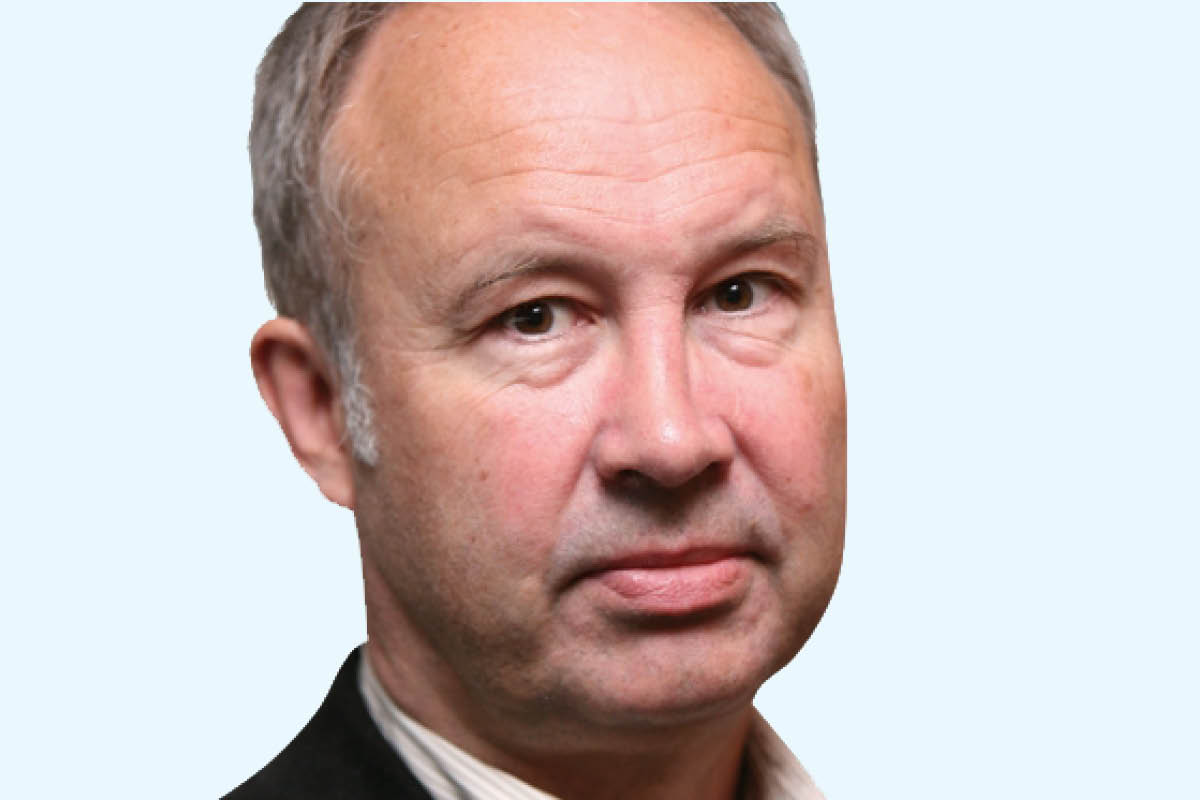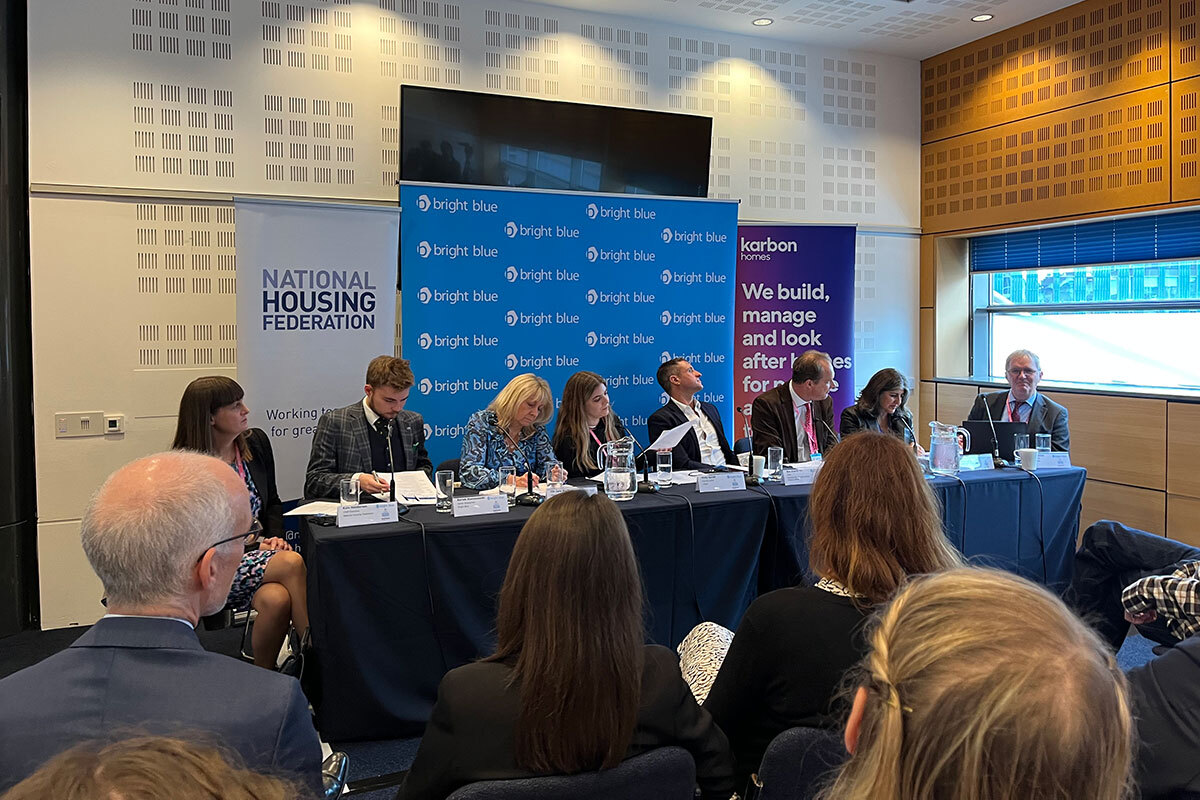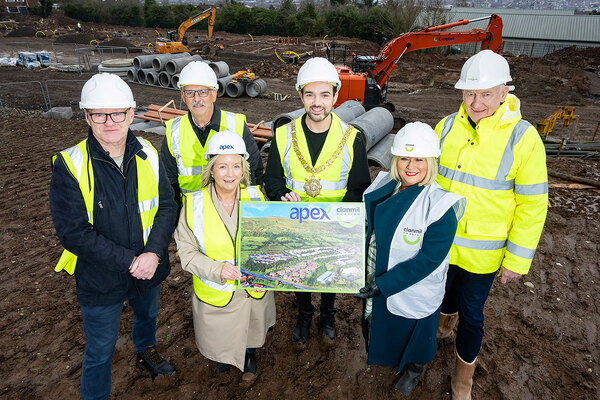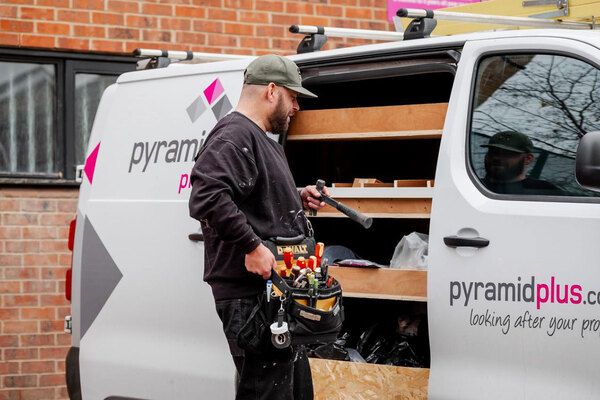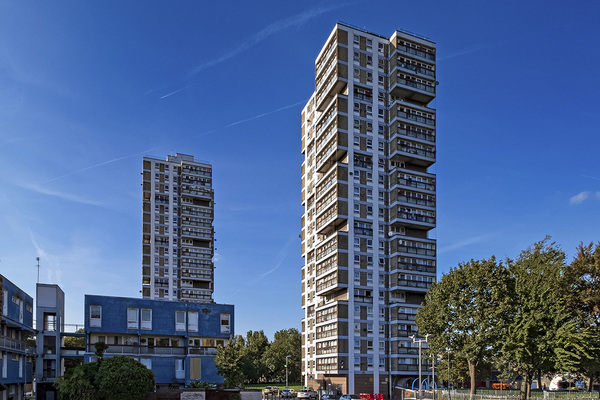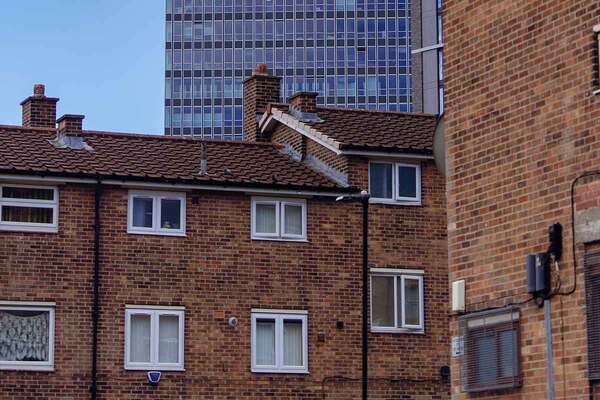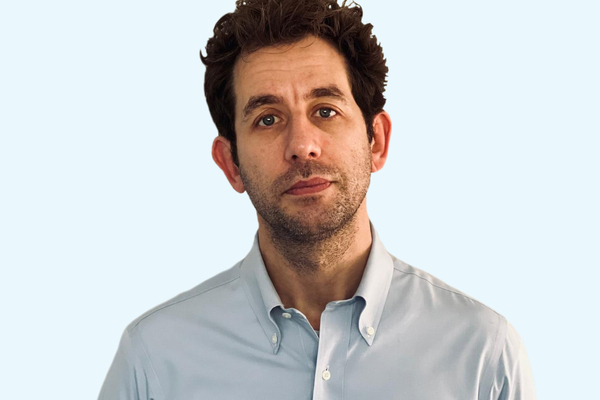You are viewing 1 of your 1 free articles
Dispatches from the Conservative Party Conference 2023
This week, the Conservative Party arrived in Manchester to host its annual conference. Grainne Cuffe reports on all things housing
The only people unaffected by the housing crisis are those who have no mortgages to pay on the homes they own, a delegate told Inside Housing at the Conservative Party Conference in Manchester.
So why then was housing not once mentioned during prime minister Rishi Sunak’s speech on Wednesday?
This was despite the fact that housing fringe events throughout the four-day event were nearly always packed, with standing room only.
In those sessions, many Conservatives acknowledged that we are in the midst of a housing crisis and that something must be done.
Housing secretary Michael Gove told at an early fringe event that the Renters’ Reform Bill was on track for a second reading this autumn, while housing and planning minister Rachel Maclean said that if she was a “gambling woman”, she would bet that leasehold reform would be announced in the King’s Speech.
Mr Gove later told Ben Twomey, chief executive of Generation Rent, that he “hopes” the bill will progress before King’s Speech, “but can’t guarantee it”.
He said the word “homes” five time in his speech to conference, during which he made the following comments on housing: “We need to ensure that every family has a safe, decent warm home.
“We need to ensure that many more young people can have a home of their own.
“We’re on track to deliver a million new homes in this parliament, but we need many more.
“And our long-term plan for housing will deliver the attractive, affordable new homes that we need.
“We will build in the hearts of towns and cities and on brownfield land because that cuts commuting times, revitalises high streets and protects the green belt.
“We will ensure that our new homes are energy efficient, zero carbon ready and built to the highest aesthetic standards.
“Because we are not just the party of opportunity and ownership, we are the party of beauty and nature.”
His statement on ensuring new homes are energy efficient and zero carbon ready comes after the prime minister announced that he had scrapped energy efficiency targets for private homes.
Mr Gove also mentioned that Ms Maclean is “reforming the planning system, fighting for more homes”.
There were no details on housing reform, nothing about social rent, or even affordable homeownership.
In fact, there were not many new ideas on housing to be taken away from the conference at all.
We learned that “we need to build more bloody homes”, said Ms Maclean at more than one fringe session. It was something everyone agreed on.
We learned (again) that the planning system is abysmal and must be reformed. We learned that social housing is good, but not good enough for a commitment to building more of it.
We also learned that Ms Maclean’s ringtone is Don’t You Want Me by The Human League.
It was clear was that for many people in the party that housing is an important issue that needs to be addressed. But as Vicky Spratt, housing correspondent at The i, said: “Whenever I do these panels, there’s always agreement and then I don’t see any of it reflected in the manifestos.
“So we know what to do but the question is, ‘Is anyone going to do it?’”
Social housing
One of the most concerning things uttered (on housing) at the conference was Ms Maclean claiming that trying to build social homes is “very misguided”.
She said development is moving at a “glacial pace” in London because of mayor Sadiq Khan’s “really misguided attempt to build social housing”, and that he’s “not building any housing at all”. Maybe he is too busy taxing meat.
But when asked by Inside Housing why trying to build social homes is “misguided”, Ms Maclean said there is “nothing wrong with building social housing”.
“I didn’t say that, to be clear. If you focus on building only social housing, rather than building housing overall, you will not get a desired outcome.”
“The best way to get more affordable houses is to build more bloody houses,” she reiterated.
At a later session, Ms Maclean did acknowledge that social housing “is the number one thing that’s actually helping people to stabilise lives and alleviate poverty and deprivation, or any of the other issues that people may experience through no fault of their own, just being born into a situation that’s extremely difficult for them”.
There were many people, including Conservatives, that said building more social homes is important – morally and financially.
At a Shelter event on Sunday, Mr Gove spoke about the important role social housing plays in giving families a secure home.
Earlier that day at a session sponsored by Clarion, Ike Ijeh, head of housing, architecture and urban space at Policy Exchange, spoke about the need for more council homes.
He said: “At the moment, the government spends £30bn on housing benefit – that is expected to rise to £71bn by 2050.
“You have a crazy system where the government is subsidising private landlords.
“Surely a more efficient way of using that public money would be actually building homes… a long-term investment where those on the lowest incomes could live.
“You increase supply, which would help with the crushing affordability issues that you have with housing.”
During a session on how housing can bolster British prosperity, Geeta Nanda, chief executive of Metropolitan Thames Valley, set out the value of the sector to the economy – about £713m a year from the association alone.
The impact of the housing crisis
At the same session, Kate Henderson, chief executive of the National Housing Federation (NHF), set out the impact of not having enough homes.
Calling for a long-term plan for housing, she said: “The statistics that really, really hit me in the gut are the ones around children.
“There are children in this country, living in overcrowded, unaffordable, unsuitable homes – and the number of children living in temporary accommodation has doubled over the past decade.
“That’s kids living in a B&B, having to do homework on the floor, having to share a kitchen or a bathroom with strangers. We need to do a lot better.”
A session on temporary accommodation on Tuesday evening had an unfortunately low attendance, likely due to timing – the night before the train strike.
As the Conservative leader of Wiltshire Council said, the turnout was “deeply depressing”.
“There really ought to be some of the other councils here because some of them are going bankrupt because of this and they’re not paying attention,” Richard Clewer said on the cost pressures of temporary accommodation.
Representatives of charities Justlife and the Shared Health Foundation spoke about heartbreaking statistics: unusually high numbers of child deaths in temporary accommodation, incredibly poor housing conditions, and disabled people facing accessibility issues.
Dr Laura Neilson, founder of the Shared Health Foundation, said most councils she speaks to do not know the number of children they have in temporary accommodation.
The charities are calling for regulation of the temporary accommodation sector, including policies that mean children are not housed with single men, children are given cots to sleep in and have access to education.
The latest research found that children miss on average nine months of education when they move into temporary accommodation.
Solutions to the housing crisis – Local Housing Allowance
At the temporary accommodation session on Tuesday, former work and pensions secretary Iain Duncan Smith said a curious thing: he has been discussing increasing Local Housing Allowance (LHA) with the current secretary of state.
LHA rates were restored to the cheapest 30th percentile in response to the COVID-19 pandemic in 2020, but they have been frozen since then and have not kept pace with inflation. They often do not cover rents in the private rented sector, meaning families are often sent out of area or remain stuck in poor temporary accommodation.
Organisations have been calling for them to be increased for years.
Mr Duncan Smith said: “We had a very good debate today about the welfare reform programme.
“Of course COVID has punched a hole through a lot of what was possible to be done in 2020, which I set out before I resigned in 2016.
“One of the areas that we did debate today and talk about was the whole issue of Local Housing Allowance, in particular key areas where market rates have risen and LHA isn’t keeping pace with that now. So that’s a big issue.
“We had the secretary of state there and, actually, two other ex-secretary of states and myself. We did say that this is one of the priorities that we have to look at now just to stabilise the ship.
“It’s not going to solve the problem but it will stabilise things, and the private sector is the only sector that can expand quite rapidly if given the right incentives.”

Planning
One thing is clear: the Conservatives believe that one of the biggest obstacles to building homes is the planning system. There was not one housing session in which the long-standing issue of planning reform was not raised.
The government is planning reforms, but a recent report by the Levelling Up, Housing and Communities (LUHC) Committee warned that the proposals will mean annual housebuilding will go down to around 150,000 a year.
During the conference, several suggestions were made to improve the system.
Mr Ijeh said it is “too slow, inefficient and doesn’t mitigate against risk” and that “we have to find a way of dealing with that if we’re going to increase supply”.
“Essentially, if any of you want to have an extension, you have to go through the same protocols as a developer building a 30-storey tower in the centre of Manchester or centre of London – it’s ridiculous.”
He added that “we have to find a way” of making sure that everything is “not just based on the discretion of a quasi judicial planning committee, but that we have rules in place that can occasionally give pre-approval if you comply with the set amount of rules”.
Mr Ijeh also said the planning system must also be “democratised”, urging better consultation of communities, making sure they are “involved and empowered”.
Henry Hill, deputy editor at Conservative Home, said the reason large developers are so dominant and “can act in some areas as cartels” is because there is so much uncertainty in the planning process.
“If we want to have a more diverse and competitive developer sector, which I think we do, the crucial thing is to have a planning system that makes single project developers viable,” he added.
Ben Everitt, MP for Milton Keynes North, said the planning system needs to be made “sexier”.
“It’s about getting better people into planning, more people, raising the esteem of planners.
“If you think about it, if you get up and go to work in the morning and you get to design a community that’s going to last for hundreds of years, that is a very cool job,” he explained.
Demand side policies
Bartek Staniszewski, senior researcher at centre-right thinktank Bright Blue, said in the short term, “we need some kind of demand side policy”.
He added: “We need to make homes cheaper for the people who really need them.
“This something that is so much more politically palatable because even if today Rishi [Sunak] came out and said, ‘We are doing an enormous housebuilding programme, we are doing half a million homes every single year, whatever it takes’, prices wouldn’t change very much before the next election and the voters wouldn’t take notice.
“On the other hand, if announced a demand side scheme, prices would change overnight, so the voters would react.”
Mr Staniszewski said demand side schemes have a bad reputation because they have “not worked perfectly”, but it “doesn’t have to be this way”.
He also spoke about housing targets, saying the country has not built 300,000 since 1977 and even if it did, the figure would not be enough.
Which leads us on to the housing and planning minister’s view on the target, or was it a target?
Housing targets
In November 2017, then-Conservative chancellor Philip Hammond committed to delivering “300,000 net additional homes a year on average by the mid-2020s”.
The figure was also included in the Conservatives’ manifesto in 2019, but was scrapped during Liz Truss’ brief reign last year, in what she described as “Soviet top-down housing targets”.
Mr Gove also committed to the target in October 2022. But in a speech in July 2023, he said the target was “never” mandatory, but that the target remains.
However, not to be out done, Ms Maclean claimed the figure was never a target in the first place.
At a session on fixing the housing crisis, one audience member – a chair of a house builder – claimed that 49 local authorities he was aware of had stopped building since the target was changed to a “guideline”. When he asked why the party had “abolished” the target, Ms Maclean denied this was the case.
She said: “We do still have housing targets. This is a very live debate… we never actually had a housing target in the way that people think we did. We had a housing need number.”
The minister went on to say that what the government is going to do is “slightly change the way the figure is interpreted by local areas to deal with some of the political backlash that occurred”.
She stated that it was “not the case” that councils stopped their local plans “on the back of what we did”.
“There are all sorts of things going on in the system anyway, local issues, there’s a legitimate reason why they might want to review etc,” Ms Maclean added.
Two of her fellow panellists said there is a need for targets.
Mr Everitt said: “I mean, look, we need targets. We need targets to achieve stuff.”
Mr Hill said: “If there are no consequences for hitting targets, then they are utterly, utterly meaningless.
“They have no incentive to do it because their local electors are people that already live there, are doing quite well and have got an asset that is appreciating faster than wages.
“It’s important to recognise that fixing the housing crisis will have losers.”
Sign up for our daily newsletter
Already have an account? Click here to manage your newsletters



